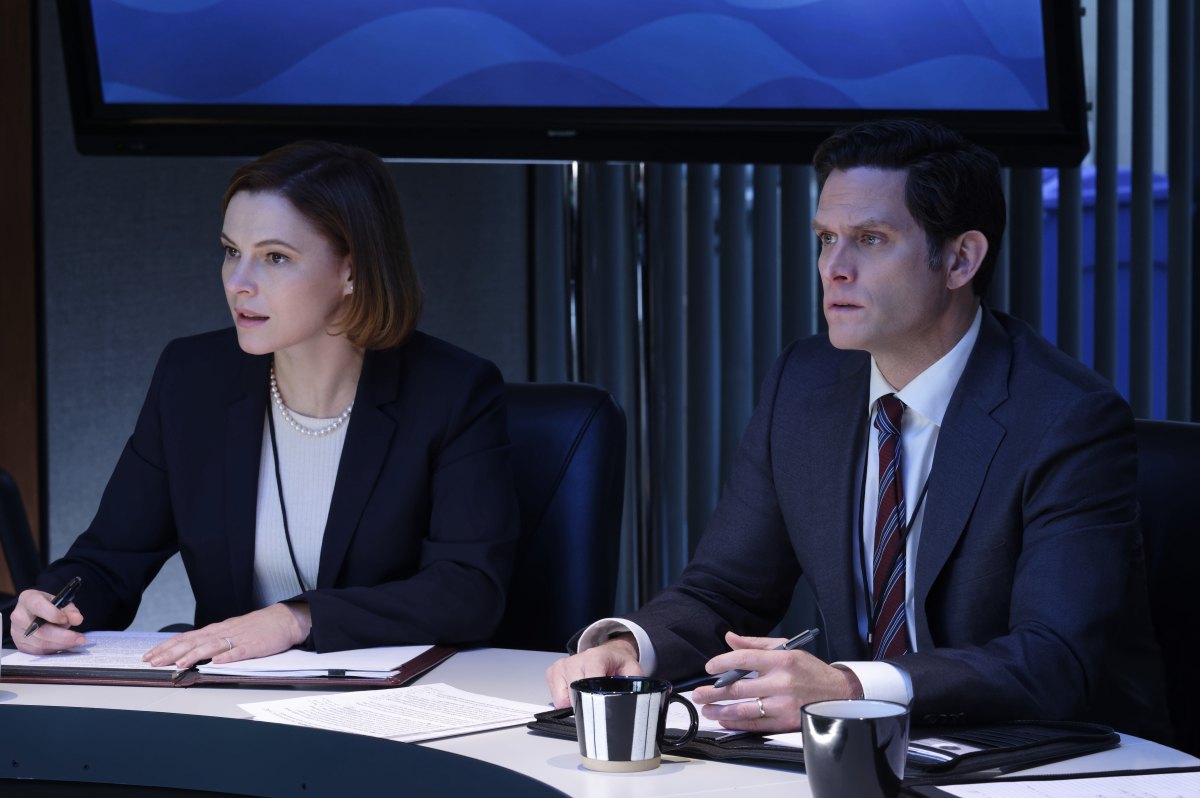Showtime’s The Comey Rule dives into FBI investigations “Midyear Exam” and “Crossfire Hurricane,” two cases which defined and changed American history. FBI agents and lawyers worked tirelessly, including former FBI attorney Trisha Anderson. Anderson was the No. 2 lawyer at the FBI’s Office of General Counsel amidst the President Donald Trump and Hillary Clinton investigations, and is played by Amy Seimetz (Stranger Things, Pet Sematary) in the two-part special.
Anderson’s role was integral to these matters, and Seimetz’s portrayal of the FBI lawyer reflected the FBI’s aplomb and discretion.
Seimetz told Newsweek about learning legalese to portray Anderson, what it was like living through the show’s events in real time, along with the newfound respect she has for the work the FBI does.
How did you prepare for this role?
I think everyone can attest to making sure you can say the words (laughs). It’s legal language, and there are words you don’t use. It’s an entire new language, you know? It was a lot of memorization and making it sound like I knew what I was talking about.
In addition to that, in particular, Trisha, the woman I’m playing, was an incredibly private person, and a lot of these people that the story is exploring and showing were all people that liked being behind the scenes and serving their country. Tracking down anything that she said in public was difficult. But I did find the transcription of some of her testimonies, surrounding the events. So I read that, all, I don’t know, 250 pages of it just to get an idea of who she was, and what she was going through and stuff like that.
Were you in touch with Trisha Anderson?
No, not at all. I know that there were a few people that were involved in the making of it that he [Billy Ray] had talked to, but I had not talked to her. I assume because she’s an incredibly private person, for reasons I completely understand.
How closely were you following the Hillary Clinton email investigation at the time it was happening?
I followed every millimeter of the entire buildup to the elections in 2016, starting with when Trump decided to run and was doing speeches at the RNC. I was fascinated. I became sort of addicted to the news cycle because it felt like every minute, something was changing. It was almost like you couldn’t write it, but it was just unbelievable. Like, every day — and it still feels this way — it’s something new.
Do you think James Comey made the right decision in telling Congress he was reopening the Hillary Clinton email case?
I don’t know. I think that’s very debatable. We’ll put it this way — my answer would be I’m glad that I wasn’t actually Trisha Anderson, and I wasn’t actually one of the people that had to make that decision. It’s ‘damned if you do, damned if you don’t.’ They were just put in a completely unprecedented situation which will be talked about for years.
I’m sure it’s shaped how they [the FBI] discuss how public they are when they announce their investigations, knowing the outcome of it.
Did you learn anything new about James Comey and his tenure at the FBI while working on The Comey Rule?
Everyone loved him. He was a very — for the FBI, from what I learned from Billy Ray and from Jeff Daniels, is that they said he was — affectionate boss. Which for the FBI was, like, strange? (laughs) But they loved working for him because he was a very sweet man and a very sweet boss. Sort of a different kind of FBI director. I’m sure they’re probably thinking that FBI directors being very robotic, but he put a lot of heart and kindness into being a boss, is what I’m told.
What was the hardest thing about working on a show that focused on such a controversial event, especially one that happened so recently in US history?
It’s so current. It hasn’t gone away, and was so shrouded in mystery with what was going on. And even the political climate now, we’re seeing, politically speaking, the left and the right just can’t come together and are so angry at each other. For us on set, making it felt like it had happened yesterday, because it still felt like we were going through it. It seemed like a precursor to what was happening now.
What do you want viewers to take away from The Comey Rule?
I’m hoping that it’s a civics lesson in how the different various branches of the government and why they’re important, and why it’s important to have integrity. These people that were faced with this unprecedented situation and it wasn’t so simple and not everything has to be politicized. These are people, who, even though they have their own political beliefs, they really do put them aside to work on the law, and stay truthful to the law, and stay loyal to the law in order to have order and have a functioning government that protects the citizens.
Regardless of how you feel about the FBI, there’s an interesting story being told.
What other projects do you have coming up?
I’m currently in Detroit, and I’m on Stephen Soderberg’s film Kill Switch, and I had a movie that I wrote and directed that was released this summer called She Dies Tomorrow. Another film that I’m in called, The Secrets We Keep, is being released right now with Noomi Rapace, Joel Kinnaman and Chris Messina. Pretty soon, I’m in this movie called Archenemy, that is coming out at a festival soon.
The Comey Rule airs on Showtime on Sunday, September 27 and Monday September 28 at 9 p.m. ET.
